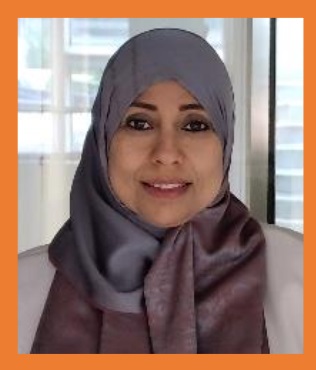
Patient Safety Education of Health-Care Professionals: What, Why, When and How?
Huda Basaleem
Faculty of Medicine and Health Sciences, University of Aden

Corresponding author.
Huda Basaleem
Assistant Vice Rector, University of Aden for Academic Affairs
Prof. Community Medicine and Public Health
Director, Aden Cancer Registry and Research Center
Tel.: 00967771263944
E-mail address: hudabasaleem92@yahoo.com
Abstract
Background: Globally, health-care schools are continuing to graduate health-care professionals lacking necessary patient safety knowledge, skills and behaviours thought necessary to deliver safe care. Evidently, patient safety education of health-care professionals has given little attention and remains under-utilized and under-valued in many countries despite years of acknowledging its importance. In 2009 the World Health Organization (WHO) World Alliance for Patient Safety developed “WHO Patient Safety Curriculum Guide for Medical Schools” and in 2011 the “Multi-Professional Patient Safety Curriculum Guide” to provide health-care schools with the requirements and tools for incorporating patient safety in education. These guides primarily used for implementing patient safety education in health-care universities/schools worldwide for educating health-care professionals through health system-focused, team-dependent, and integrated approach to learning for students.
This paper highlights the general requirements necessary for incorporating patient safety in health-care education aiming at foundation of capacity building in essential patient safety principles and concepts. The paper discusses human factors and their importance to patient safety; understanding the impact of complexity on patient care; being an effective team player; understanding and learning from errors; understanding and managing clinical risk; introducing quality improvement methods, minimizing infection through improved infection control; engaging with patients and carers, patient safety and invasive procedures and improving medication safety. It further addresses the challenges of health-care professional training, including: a mismatch of competencies to patient needs; curricular rigidities and static pedagogy; poor teamwork learning; narrow technical focus without broader contextual understanding; and weak leadership to improve health-system performance.
Finally, this work establishes the need for patient safety education, and concluded the must to fully embrace patient safety concepts and principles into existing health-care curricula with the underpinning and applied knowledge that will facilitate the incorporation of patient safety principles into their practice, in a wide range of health-care delivery environments and health systems.
02-100-019/PS © 2023 ALARAB UNIVERSITY. All rights reserved
Biography
Huda Basaleem is the Assistant Vice President of the University of Aden for Academic Affairs,Director, Aden Cancer Registry and Research Center and Professor of Community Medicine andPublic Health at the Faculty of Medicine and Health Sciences, University of Aden, Yemen. She is theVice President of the Organization for Women in Science for the Developing Countries (OWSD-UNESCO) and the Secretary General of the Yemeni Women Association for Science & Technologyand the representative of Yemen in the Permanent Advisory Committee for Scientific Research andInnovation, Arab League Educational, Cultural and Scientific Organization (ALCSO).Dr. Huda has more than 20 years as a practicing physician and public health consultant and years ofworking with UN, international and national NGOs including WHO, UNICEF, UNHCR, IOM, WorldBank, Foundation for Future, European Commission as a consultant and principal investigator incommunity medicine and public health with particular expertise in women and child health,nutrition, women empowerment, reproductive health, and gender-based violence.With theprotracted conflict in Yemen and associated humanitarian consequences, she is being extensivelyinvolved in collaborative consultancies with governmental (like Ministry of Health) and non-governmental stakeholders addressing this issue. She is an expert at the World Health Organizationfor the Eastern Mediterranean Countries on NCDs surveillance, a member of the Country FocalPoint Bioethics Network on Women’s Issues in the Arab Region, a Member of the Ethics Centre ofScience, Technology, along with her membership at the Women Centre for Research and Training atUniversity of Aden and a member of important scientific and professional organization at theregional and international level. Dr. Huda has published more than 80 research papers in local, regional, and international peerreviewed scientific journals, as well as books from international publishing houses. In addition toher national expertise Dr. Huda also has expertise on the international level. She is a facilitator andcommunity member of International educational activities at the National Academies of Science(NAS), USA. She is also the Editor-In-Chief of the Yemeni Journal of Medical and Health Sciences andEditorial Board Member in a number of regional and international journals.Throughout her professional and academic careers, Dr. Huda received number of awards. In 2013she received the Elsevier Award in Life Silences for early career Women Scientists in the Developingworld for the Arab Region, in 2014 received recognition of Best Doctor for the Fight for BetterWorld in the Arab World, in 2019 she received a Recognition from UNESCO on the InternationalDayofWomen and Girls in Science, in 2020 she was nominated as the Scientist of the Year(International Achievement Research Center, USA) and in 2021 she received the TWAS-Fayzah Al-Kharafi Award for the distinguished work in cancer control strategies and enhancing woman andchild health locally and regionally. Recently, she is ranking the first researcher in the university ofAden for 3 consecutive Years 2021, 2022 and 2023 in the international AD Scientific Index.
